Aug 5, 2008 CERITALAH By KARIM RASLAN
The close bond between certain party activists is one of the little known strengths of the opposition coalition.
FOR a few weeks, as turmoil churned, Pakatan Rakyat threatened to unravel, but the opposition coalition has since managed to regain its composure.
Still, the discovery of secret high-level talks between Umno and PAS, the sodomy accusations against PKR de facto leader Datuk Seri Anwar Ibrahim, and the abortive oil price rise demonstrations on July 6 at the Kelana Jaya stadium, culminating in the indie-rock group Karburetor Dung’s controversial performance, dampened Pakatan’s enthusiasm.
The events also set off a round of mutual recrimination that halted the coalition’s gathering momentum just as Barisan Nasional seemed to be at its weakest.
However, PAS spiritual adviser Nik Abdul Aziz Nik Mat’s intervention – on July 31, PAS’ Central Working Committee and its Majlis Syura Ulamak ruled out a PAS/Umno alignment – followed the same day by Datuk Seri Dr Wan Azizah Wan Ismail’s resignation as Member of Parliament for Permatang Pauh (thereby allowing for her husband’s return to Parliament), has served to halt the decline.
The two announcements, along with the upcoming PAS Muktamar in mid-August, will serve to unite Pakatan around concrete political objectives.
Certainly, this will strengthen the position of those within PAS who are opposed to any form of merger or accommodation with Umno.
The decisiveness of the past week will be warmly received by the more activist figures within Pakatan – men and women with roots in NGO activism and political agitprop.
Leaders such as PKR information chief and Batu MP Tian Chua, the DAP’s Ronnie Liu (currently a Selangor State Exco member) and PAS treasurer and Kuala Krai MP Dr Hatta Ramli are in many ways the opposition’s street-fighters. They are also the keepers of their respective party’s credibility and integrity.
They are the one’s who mobilise the troops, the one’s who are ready and willing to take the debate to the people and on the streets, at any time.
As Liu says, brimming with confidence: “Over the past few weeks I was the least disturbed. I wasn’t jittery or worried. I knew my friends in PAS would stick to their principles.”
Indeed, the strong relationships between the three men reflect one of the little known strengths of Pakatan.
They have developed a close working relationship as result of the years spent organising and participating in political demonstrations.
These experiences have also forged among them a shared sense of solidarity in the face of Barisan’s overwhelming might.
In certain cases, such as Dr Hatta and Tian Chua, their friendship pre-dates their involvement in full-time politics.
As Tian Chua explained to me in his cramped Sentul office: “I’ve known Hatta from the early 1990s. I was at the human rights NGO Suaram, and he was an academic at Universiti Kebangsaan.”
Hatta, for his part, concurs good-naturedly: “Tian Chua and I have even been cell-mates many times – back in 1999 and also as recently as January this year! We know each other well.”
In the case of Liu, Dr Hatta says: “We were involved in organising the toll price rise demonstrations in early 2007. In fact, Ronnie and I were both arrested together at one of the demos.”
Organising demonstrations, opposition seminars and workshops has imbued the three men with a degree of trust and mutual understanding. They really know each other, not to mention each other’s political parties, strengths and weaknesses.
Furthermore, the focus on issues of civil liberties, social justice and equity, and transparency and accountability lends them an added sense of joint purpose and shared interest.
As Dr Hatta says: “Events like Bersih (Coalition for Clean and Fair Elections) have been an important part of learning to coordinate between the three parties.”
However, their mutual friendship and familiarity is quite different from the cordial but essentially distant relations that exist among many Pakatan MPs in Parliament.
This is due in part to the sudden influx of newbie politicians into all three parties, some of whom only joined their respective parties just before the March election.
Still, the activists have become much more pragmatic. Dr Hatta, for one, acknowledges the extent to which PAS has also reaped the rewards of working with the DAP and PKR.
“Dr Siti Mariah Mahmud’s 20,000-vote majority in Kota Raja, a parliamentary constituency with only 50% Malay votes shows that PAS is a beneficiary of the Pakatan,” he notes.
When he discusses relations with the DAP and PKR he’s equally frank: “We are equals. We recognise our differences, but we focus on what we can agree on, even if outsiders focus on what could divide us. Clearly, Umno wants to spoil the relationship.”
The same approach is adopted by Tian Chua.
“Pakatan wasn’t born suddenly on March 8. PAS and DAP for example, have tried working together before. There had been consensus-building and cooperation for decades: some successful, some not so successful,” he says.
“In general, there’s been a consensus on civil rights, whereas the grand ideological debate has been downplayed. PAS has become more pragmatic. Voters are more focused on bread and butter issues and the general social setting.”
Nonetheless, I would still argue (in the face of the positive Pakatan spin) that PAS and DAP’s diametrically opposed views on the Islamic state and the introduction of syariah law remain an enormous unresolved challenge and a potential deal breaker for the future.
At the same time Tian Chua places a positive reading on the inevitable tensions within the coalition: “This open debate is a sign of PR’s inherent strength, rather than of fragmentation.”
While all three men are avowed Anwar admirers, they are wary of over-playing the former Deputy Prime Minister’s role.
Liu, with his customary firmness, stresses: “Anwar has a unique role to play, like a bridge; but not all relationships go through PKR.”
Nonetheless, behind the bravado there is a growing realisation that Pakatan leaders must be seen together more regularly.
Rank and file supporters and the public at large need and want constant reassurance.
While working relationships are evolving and maturing rapidly on the ground – especially in Perak, as between Mentri Besar Datuk Mohammad Nizar Jamaluddin and state DAP strongmen Datuk Ngeh Khoo Ham and Nga Kor Ming – the national level leaders haven’t been so proactive.
Obviously both Nik Aziz’s and Hadi Awang’s poor health has made scheduling more difficult.
Liu comments: “You can’t depend on all these personal relationships and bonds alone to manage Pakatan. We need to institutionalise these arrangements and platforms.”
With the crucial by-election in Permatang Pauh looming, the activists are moving to the forefront of political activity.
Their energy and clarity of vision will drive Pakatan forward.
As Dr Hatta asserts: “We view an attack on Anwar as an attack on Pakatan as a whole.”
For the foreseeable future then, Pakatan will need to fall back on the constant threat of Barisan as a rallying force, because without the looming presence of the “cruel and unjust” government the tensions within the opposition might prove too difficult to manage.
However, Liu argues: “Say what you like about us, but we do have a common language – we fight for democracy, transparency, justice and the welfare of the people.
“We have a shared platform and a shared ideology.
“When you look at the other side you have to ask, do they have a shared ideology?”
I wish I could say he was wrong.
Subscribe to:
Post Comments (Atom)
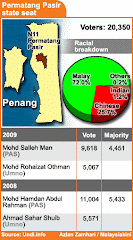

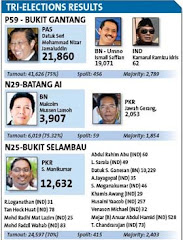

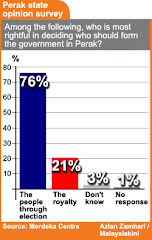
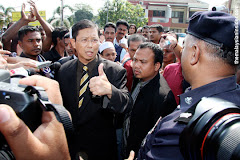
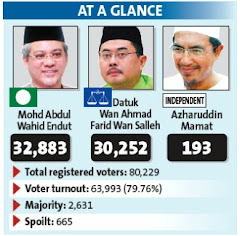
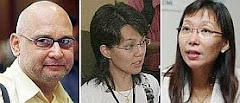

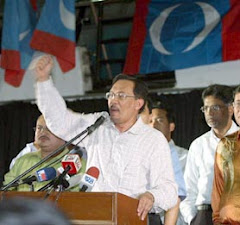
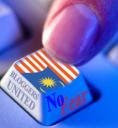
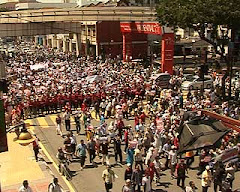

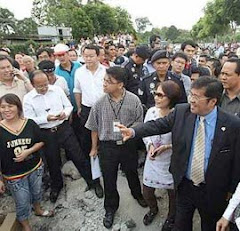
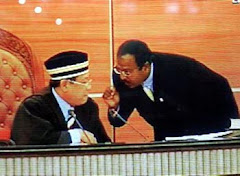


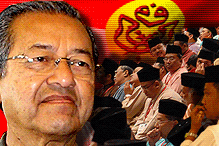
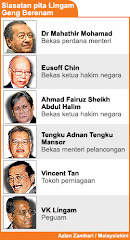
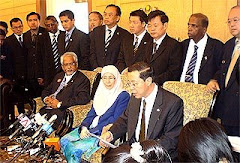
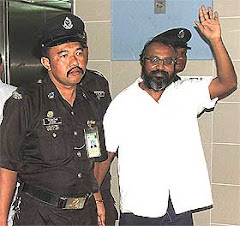
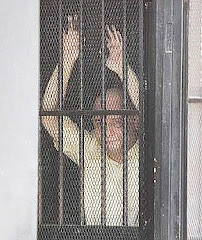
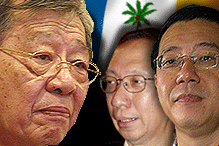

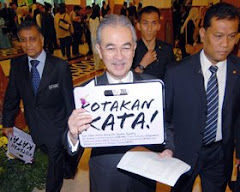
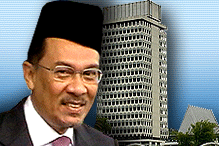
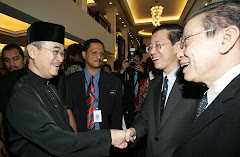






No comments:
Post a Comment